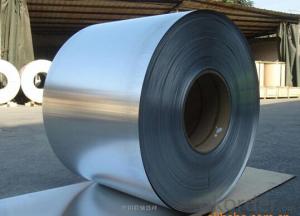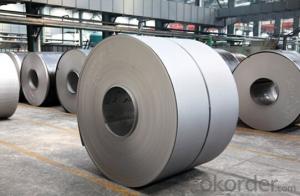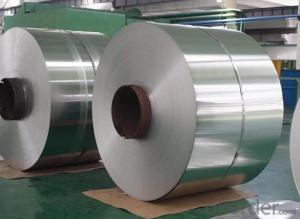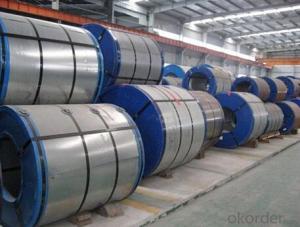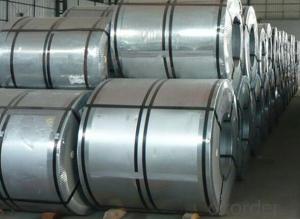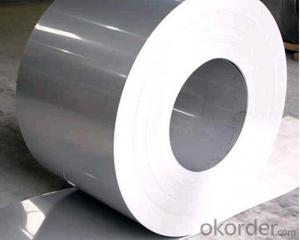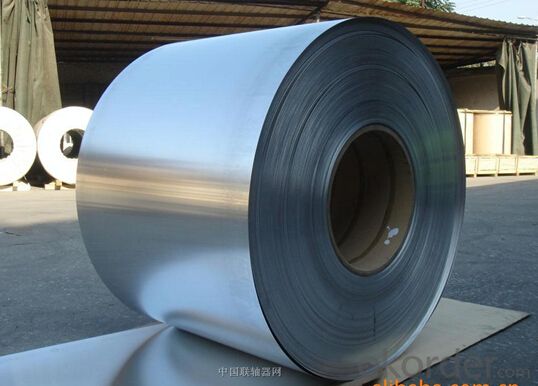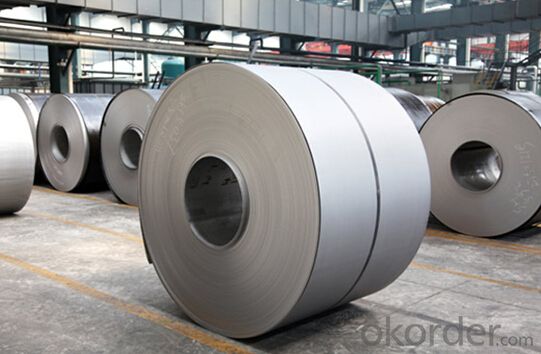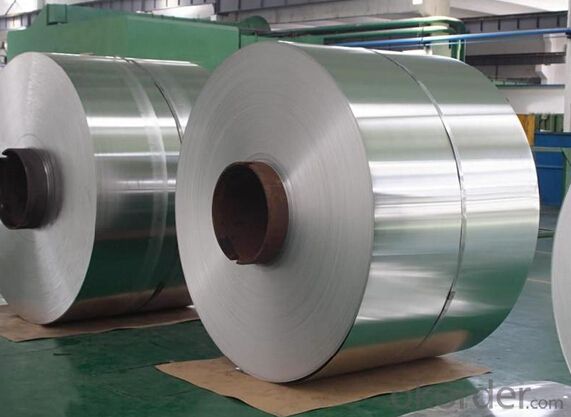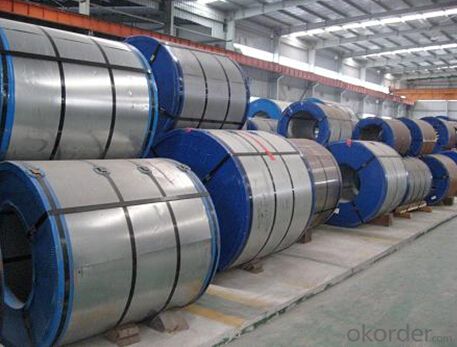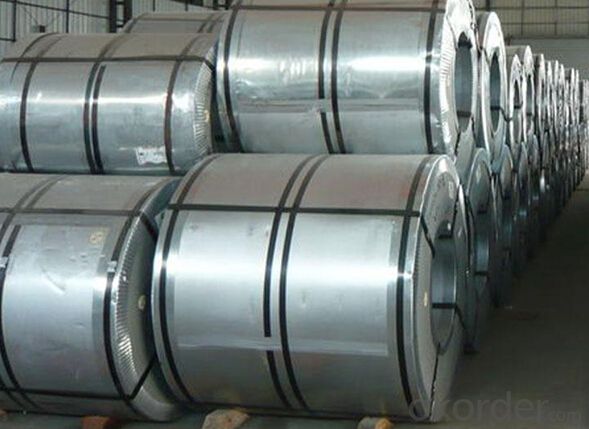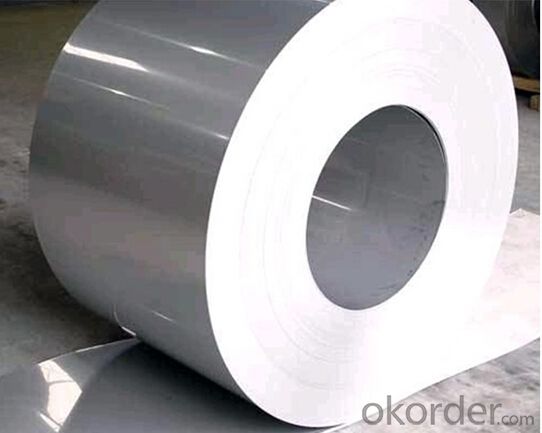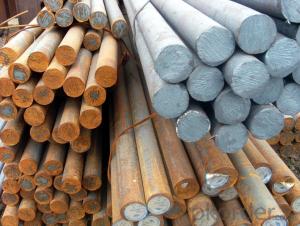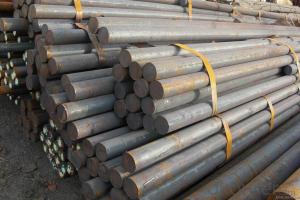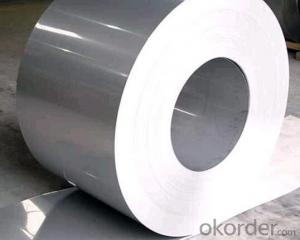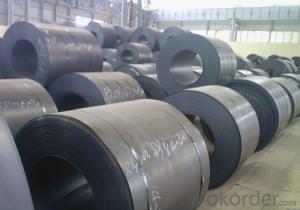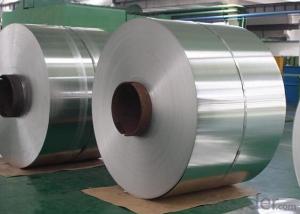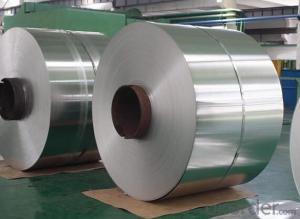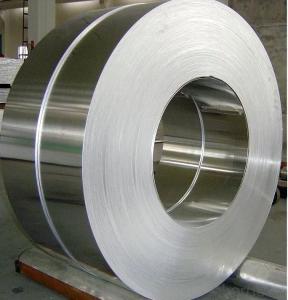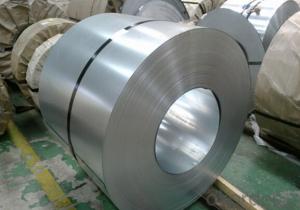Grade ASTM A755M CS-B Galvanized Steel Coil
- Loading Port:
- Tianjin
- Payment Terms:
- TT OR LC
- Min Order Qty:
- 3 m.t.
- Supply Capability:
- 10000 m.t./month
OKorder Service Pledge
OKorder Financial Service
You Might Also Like
Specification
Grade ASTM A755M CS-B Galvanized Steel Coil
Specification of ASTM A755M CS-B Galvanized Steel Coil
1. Galvanized Steel Coil
(1) Width: 600-1570mm
(2) Thickness: 0.13-5.0mm
(3) Grade: JIS G3302-SGCC-SGC570, SGCH (full hard-G550), SGHC-SGH540
EN10346-DX51D+Z, DX53D+Z, S250GD-S550GD
STM A653-CS-B, SS255-SS550
(4) Zinc Coating: Z40g/m2~Z500g/m2 (both side total coating thickness)
2. Galvalume Steel Coil
(1) Width: 600~1500mm
(2) Thickness: 0.15~2.30mm
(3) Grade: JIS G3321-SGLCC, SGLC400-570, (G550)
EN10346-DX51D+AZ, DX53D+AZ, S250-S550
ASTM A792M CS-B, SS255-SS550
(4) AZ Coating: AZ50~AZ185g/m2
3. Prepainted Galvanized Steel Coil (PPGI)
(1) Width: 600~1250mm
(2) Thickness: 0.19~1.50mm
(3) Grade: JIS G3312-CGCC, CGC340-570, (G550)
ASTM A755M CS-B, SS255-SS550
(4) Zinc Coating: Z40g/m2~Z500g/m2 (both side total coating thickness)
4. Prepainted Galvanized Steel Coil (PPGL)
(1) Width: 600~1250mm
(2) Thickness: 0.20~1.50mm
(3) Grade: JIS G3322-CGLCC, CGLC340-570, (G550)
ASTM A755M CS-B, SS255-SS550
(4) AZ Coating: AZ50~AZ185g/m2 (both side total coating thickness)
5. Cold Rolled Steel Coil (Soft) (for further information, pls click the product name)
(1) Width: 600~1570mm
(2) Thickness: 0.13~2.50mm
(3) Grade: JIS G3141-SPCC-SD, SPCD-SD, SPEC-SD
JIS G3135-SPFC 340/390/440
EN10130-DC01, DC03, DC04
SAE1006, SAE1008
ASTM A424-TypeⅡ
6. Cold Rolled Steel Coil (Full Hard) (for further information, pls click the product name)
(1) Width: 600~1570mm
(2) Thickness: 0.13~2.50mm
(3) Grade: JIS G3141-SPCC-1B, SPCC-1D
7. Hot Rolled Steel Coil
(1) Width: 1000~1524mm
(2) Thickness: 1.20~16.5mm, other thickness can be negotiation
(3) Grade: JIS G3101-SS400, JIS G3132-SPHT1/2/3, ASTM A36, Q195, Q235 etc.
Company Introduction of the Grade ASTM A755M CS-B Galvanized Steel Coil
CNBM International Corporation is the most import and export platform of CNBM group(China National Building Material Group Corporation) ,which is a state-owned enterprise, ranked in 270th of Fortune Global 500 in 2015.
With its advantages, CNBM International are mainly concentrate on Cement, Glass, Iron and Steel, Ceramics industries and devotes herself for supplying high quality series of refractories as well as technical consultancies and logistics solution.
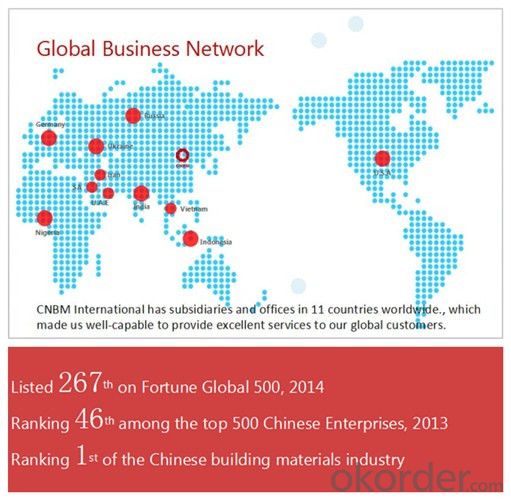
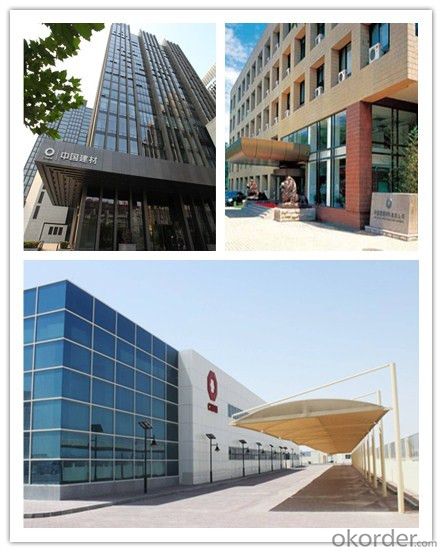
Packaging & Delivery of the Grade ASTM A755M CS-B Galvanized Steel Coil
Packaging Detail | Sea worthy packing /as per customer's packing instruction |
Delivery Detail | 15 ~ 40 days after receiving the deposit |
Products Show:
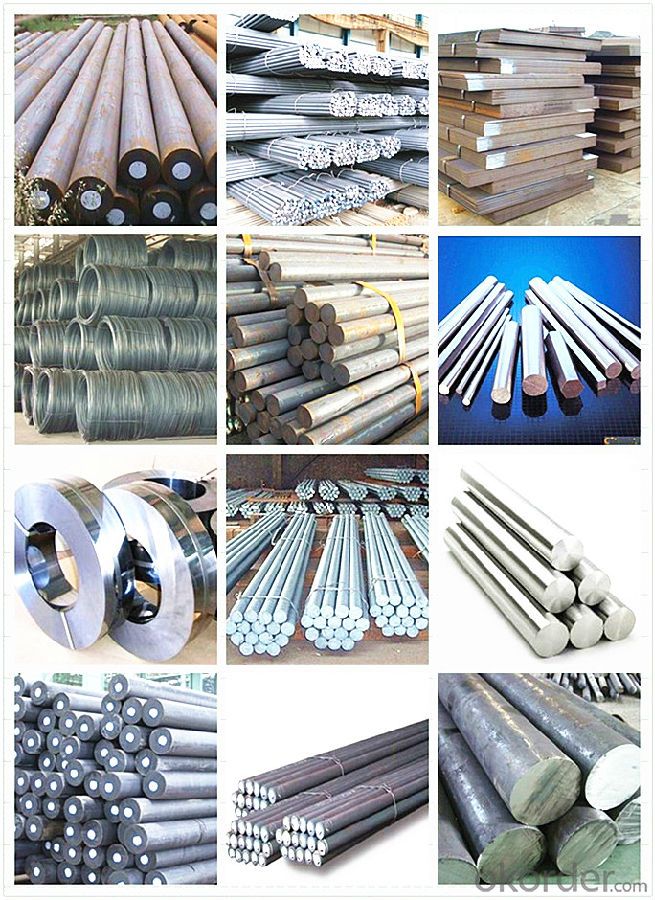
FAQ:
Are you a trading company or manufacturer? | Manufacturer |
What’s the MOQ? | 3 metric ton |
What’s your delivery time? | 15-35 days after downpayment received |
Do you Accept OEM service? | Yes |
what’s your delivery terms? | FOB/CFR/CIF |
What's the Payment Terms? | 30% as deposit,70% before shipment by T/T |
Western Union acceptable for small amount. | |
L/C acceptable for large amount. | |
Scrow ,Paybal,Alipay are also ok | |
Why choose us? | Chose happens because of quality, then price, We can give you both. Additionally, we can also offer professional products inquiry, products knowledge train (for agents), smooth goods delivery, excellent customer solution proposals. |
What's your available port of Shipment? | Main Port, China |
What’s your featured services? | Our service formula: good quality+ good price+ good service=customer's trust
|
Where are your Market? | Covering more than 160 countries in the world |
- Q: What are the different pharmaceutical grades of special steel?
- There are various pharmaceutical grades of special steel that are specifically designed and produced to meet the stringent requirements of the pharmaceutical industry. These grades are used in the manufacturing of equipment, instruments, and components that come into direct contact with pharmaceutical products. The different pharmaceutical grades of special steel include: 1. 316L Stainless Steel: This grade is widely used in pharmaceutical applications due to its excellent corrosion resistance and high purity. It is often referred to as surgical stainless steel and is suitable for parts that require frequent cleaning and sterilization. 2. 304 Stainless Steel: This grade is also commonly used in the pharmaceutical industry for its corrosion resistance and ease of fabrication. It is suitable for equipment and components that do not require as frequent cleaning or sterilization. 3. Duplex Stainless Steel: This grade offers a combination of high strength and corrosion resistance, making it suitable for applications where durability and reliability are key. It is often used in pharmaceutical processing equipment that handles aggressive chemicals or high-pressure environments. 4. Hastelloy: This is a nickel-based alloy that exhibits superior resistance to corrosion, heat, and chemicals. It is commonly used in pharmaceutical applications where extreme conditions are present, such as in reactors or vessels that handle highly corrosive substances. 5. Titanium: Although not technically steel, titanium is often considered a pharmaceutical-grade material due to its excellent biocompatibility and corrosion resistance. It is used in medical implants and devices, as well as in pharmaceutical equipment that comes into contact with sensitive drugs. These pharmaceutical grades of special steel are carefully selected based on their specific properties and suitability for pharmaceutical applications. They are manufactured and tested to ensure compliance with industry standards and regulations, such as Good Manufacturing Practices (GMP) and the United States Pharmacopeia (USP). Using the appropriate grade of steel in pharmaceutical manufacturing helps to ensure product safety, quality, and integrity.
- Q: What are the future prospects for the special steel industry?
- The future prospects for the special steel industry are promising. With the increasing demand for high-performance and durable materials in various sectors such as automotive, aerospace, construction, and energy, the special steel industry is expected to witness steady growth. Additionally, advancements in technology and innovation are likely to drive the development of new and improved special steel alloys, further boosting the industry's prospects. Furthermore, the growing emphasis on sustainability and environmental regulations may create opportunities for the special steel industry to develop eco-friendly solutions. Overall, the special steel industry is well-positioned for a prosperous future.
- Q: How is high-strength alloy steel used in the production of structural components?
- High-strength alloy steel is commonly used in the production of structural components due to its exceptional strength-to-weight ratio and durability. It provides the necessary strength and stability required for structural applications, such as bridges, buildings, and infrastructure. The high-strength properties of alloy steel allow for the creation of lighter and more efficient structures, reducing material and construction costs while ensuring structural integrity and safety.
- Q: Can special steel be used in the power generation equipment manufacturing industry?
- Yes, special steel can be used in the power generation equipment manufacturing industry. Special steel possesses unique properties such as high strength, resistance to corrosion, and high temperature resistance, making it suitable for the construction of components and structures used in power generation equipment. These include turbine blades, generator shafts, pressure vessels, and boiler tubes, among others. Special steel's exceptional characteristics ensure the reliability, efficiency, and durability of power generation equipment, making it an essential material in the industry.
- Q: How is the toughness of special steel measured?
- The toughness of special steel is typically measured using specific tests and methodologies that evaluate its ability to absorb energy and resist fracture. One common method is the Charpy V-Notch (CVN) test, which involves striking a notched specimen with a pendulum hammer and measuring the energy absorbed during fracture. The results are expressed as the amount of energy absorbed per unit area, usually in joules per square centimeter (J/cm²) or foot-pounds per square inch (ft-lb/in²). Another test commonly used is the Izod test, which is similar to the CVN test but uses a different specimen geometry. Additionally, other mechanical tests like tensile strength, impact strength, and fracture toughness measurements can also be used to assess the toughness of special steel. These tests help engineers and manufacturers determine the suitability of special steel for various applications, especially those that require high resistance to impact or sudden loading.
- Q: What are the requirements for special steel used in telecommunications infrastructure?
- Special steel used in telecommunications infrastructure must meet certain requirements in order to ensure its effectiveness and longevity. Some key requirements include high strength and durability to withstand harsh environmental conditions, such as extreme temperatures and corrosive elements. The steel must also possess excellent conductivity and low electrical resistance to ensure efficient transmission of signals. Additionally, it should have good weldability and formability to facilitate the fabrication and installation process. Compliance with relevant industry standards and regulations is also crucial in order to guarantee the quality and performance of the steel in telecommunications infrastructure.
- Q: How does special steel perform in tooling applications?
- Special steel performs exceptionally well in tooling applications due to its high strength, durability, and resistance to wear and abrasion. It is specifically designed to withstand the demanding conditions of tooling environments, such as cutting, shaping, and forming various materials. The unique properties of special steel, including its excellent hardness and toughness, make it an ideal choice for producing reliable and long-lasting tools that can efficiently handle heavy workloads and maintain their performance over time.
- Q: How does special steel perform in terms of electrical conductivity?
- Special steel does not have high electrical conductivity compared to other materials such as copper or aluminum.
- Q: What are the different methods of improving the strength of special steel?
- There exist various approaches that can be utilized to enhance the strength of special steel. One prevalent technique involves the process of alloying. By incorporating specific elements like manganese, chromium, or vanadium into the steel, its strength and hardness can be significantly augmented. These alloying elements form robust and stable compounds with the steel, thereby enhancing its overall strength. Another method entails heat treatment. This process entails subjecting the steel to controlled heating and cooling processes in order to modify its microstructure. For instance, quenching and tempering can be employed to increase the strength and hardness of the steel by creating a hardened martensitic structure. Additionally, precipitation hardening is a heat treatment technique that involves the formation of fine particles within the steel matrix, resulting in improved strength. Cold working is also a widely utilized technique for strengthening special steel. By subjecting the steel to plastic deformation at low temperatures, its grain structure becomes elongated, and dislocations are introduced. This leads to an increase in the strength and hardness of the steel. Furthermore, surface treatments can be implemented to enhance the strength of special steel. For instance, carburizing or nitriding can be utilized to introduce carbon or nitrogen into the surface layer of the steel, resulting in the formation of a hard and wear-resistant surface. Moreover, advancements in metallurgical technology have introduced techniques such as powder metallurgy and rapid solidification. These methods involve the production of steel with fine and homogeneous microstructures, leading to improved strength and performance. In summary, the methods for improving the strength of special steel encompass alloying, heat treatment, cold working, surface treatments, and advanced metallurgical technologies. These techniques can be customized to meet specific requirements, enabling the production of high-strength and high-performance steel for various applications.
- Q: How does the heat treatment process affect special steel?
- The heat treatment process greatly affects special steel by altering its microstructure, improving its mechanical properties, and enhancing its overall performance. The process involves heating the steel to a specific temperature and then cooling it at a controlled rate. This changes the steel's internal structure, making it stronger, more durable, and resistant to wear and corrosion. Additionally, heat treatment can modify the steel's hardness, toughness, and flexibility, making it suitable for specific applications such as cutting tools, automotive parts, or aerospace components.
Send your message to us
Grade ASTM A755M CS-B Galvanized Steel Coil
- Loading Port:
- Tianjin
- Payment Terms:
- TT OR LC
- Min Order Qty:
- 3 m.t.
- Supply Capability:
- 10000 m.t./month
OKorder Service Pledge
OKorder Financial Service
Similar products
Hot products
Hot Searches
Related keywords
